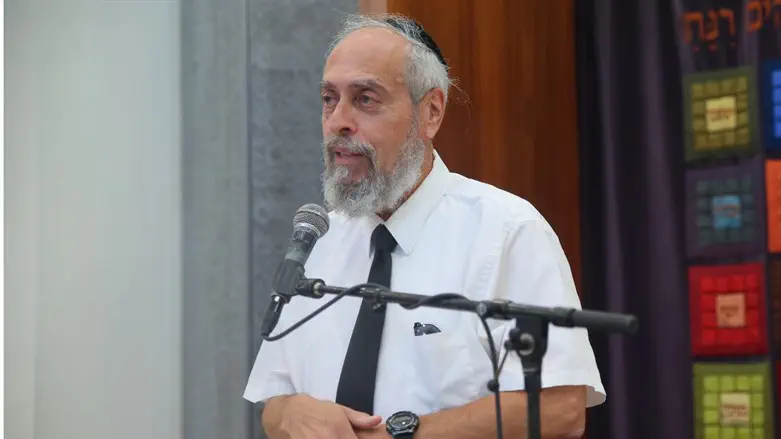
The Torah Yerushalayim Conference in memory of David & Norma Fund was held this week at Nitzanim synagogue in Jerusalem with the participation of hundreds of people from the English-speaking community, as well as the Executive Director of OU Israel, Rabbi Avi Berman, OU Israel President, Stuart Hershkowitz, and the Deputy Mayor of Jerusalem Aryeh King.
A variety of rabbis and speakers gave lectures to help one prepare for Rosh Hashanah and the Days of Awe, including the rabbi of the Nitzanim synagogue Rabbi Shai Finkelstein, Rabbi Sam Shor (Program Director, OU Israel), Rabbi Dr. Aaron Adler, Rabbi Dr. Tzvi Hersh Weinreb (Executive Vice President Emeritus), Rabbi Shmuel Goldin former president of the Rabbinical Council of America), Mrs. Shira Smiles, Rebbetzin Zemira Ozarowski (director of women's programming at OU Israel), and many others.
OU Israel Executive Director of OU Israel, Rabbi Avi Berman, opened the event with a blessing to all those present: “It is a great joy to see so many members of the community gather here in the synagogue to prepare together for the essence and atmosphere of the Days of Awe. The OU is happy to serve as a meeting place for empowerment and deepening the connection of religious sanctity. ‘Borcheinu Avinu, Bless us, our Father, all of us together, as one, in the light of Your countenance’ - it is only when we are united together that we can properly receive God's blessing. As we are all here together, I wish everyone God's blessing in the coming year, and may God bless us all with peace.”
Rabbi Dr. Aaron Adler, author of Conversations in Transit with Rav Soloveitchik and a pulpit rabbi in Israel for many years, spoke about the essence of Yom Kippur as a day in which everyone stands trial together: “Jerusalem is in a real earthquake. We beg God that our leaders can put all their differences aside so that we can pass the Day of Judgment and the Day of Atonement in peace together," he said.
"I particularly remember the Yom Kippur of 2007," recalled Rabbi Adler. "It was during a military exercise of a cadet course in Training Base 1. The Training Base commanders approached me and asked me to be with them for Yom Kippur. There were hundreds of soldiers, men and women, most of them secular but some of them yeshiva students, singing all the prayers together and praying with passion and brotherhood alongside their comrades-in-arms. Before Neilah, I told them that I only wanted one thing - that we get to see everyone here next year as well. Everyone answered, “Amen!” and started crying from the emotions of the moment. They had all made themselves ready to give their lives wholeheartedly for the State of Israel.” Finally, the rabbi said in a choked voice and tears: "God gave us Jerusalem, the Land of Israel. Now we must do all we can to stay together so that we can get through Days of Awe with love and true brotherhood ".
Rabbi Shai Finkelstein asked: “Is Rosh Hashanah a happy holiday or a somber and frightening day of judgment? It must be that Rosh Hashanah was designed to be a complex and multi-layered day. If it’s a day of judgment, what would you do? You would come scared, a mess. Yet we come to Rosh Hashanah in white and festive clothes. So what does this special day actually represent for us? It represents the very complexity of our lives. Sometimes there is judgment, and sometimes there is joy. The goal is to recognize that there is one God who unites everything together - fear, sadness, joy, and happiness. This is how we can understand the complexity of this day.”
Rebbetzin Zemira Ozarowski spoke about the theme of the Rosh Hashana prayers and pushing ourselves to be the best we can be to accomplish our unique roles in this world. “What does it mean to make Hashem king over us? We need to understand how we handle everything G-d gives us.”
Rabbi Shmuel Goldin noted that “Communication is key, but without knowing with whom you are communicating and how, it is meaningless. In these Days of Awe, we spend our time communicating with the Master of the World through prayer, but we need to delve deeper into the meaning of the words, what we are saying, and why. You won’t be able to predict what will be the most significant moment for you on Yom Kippur, but the most important thing is to be focused and in a prayer mindset all day long to catch this unexpected moment. You cannot expect to experience that moment in any other way without being present for the whole day."
